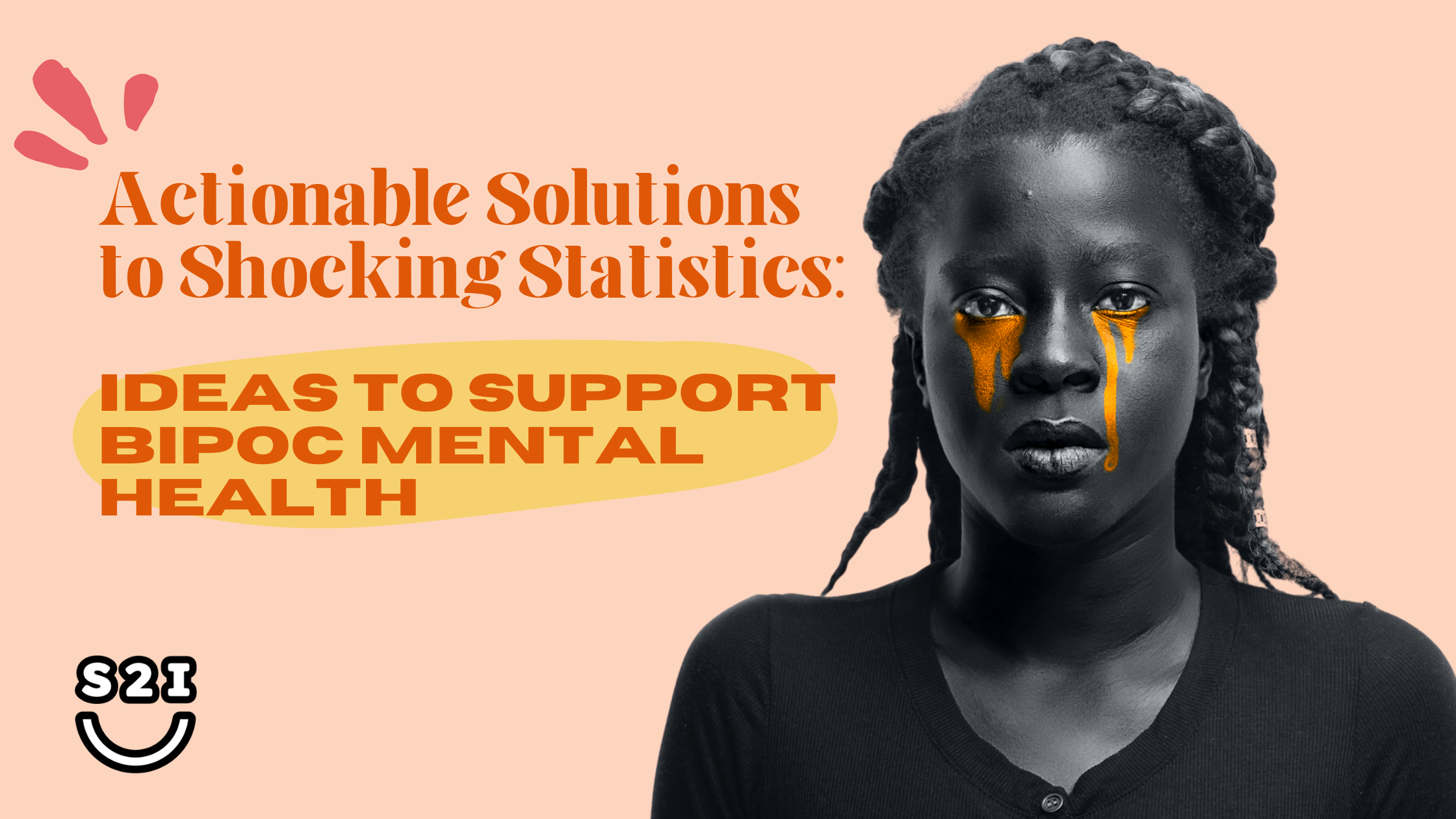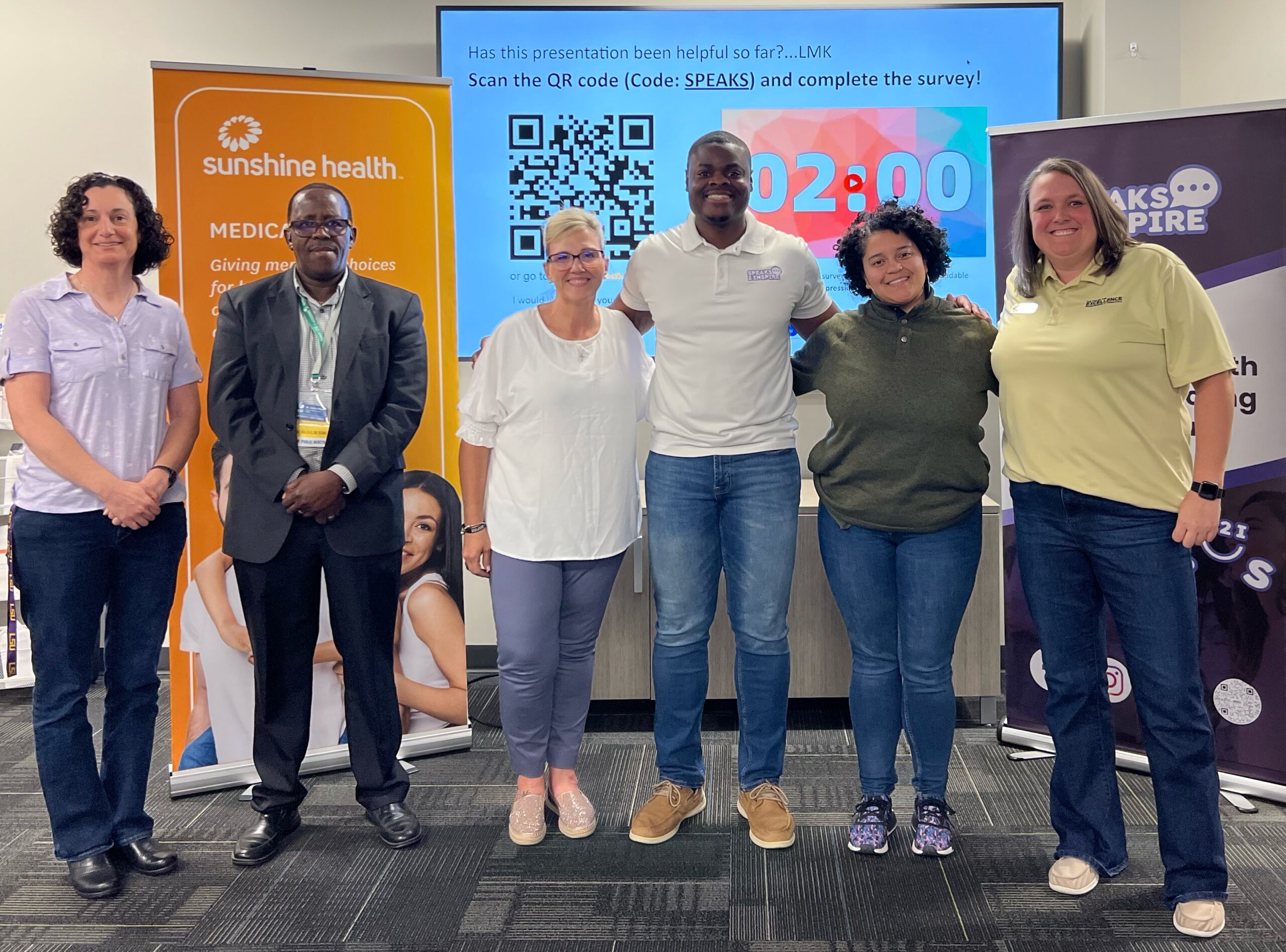This blog was written by Abraham Sculley, Founder, Speaks 2 Inspire:
As the founder of Speaks 2 Inspire, a Black-owned mental health consultancy, I understand the power of sharing my story as a black man who struggled with and overcame mental health challenges. Promoting mental wellness in the Black community is one of our top priorities year-round, but especially during February and Black History Month.
BIPOC students face unique challenges, especially when attending predominantly white campuses. Coming from a different cultural context, many students carry the weight of racialized trauma, which ends up being exacerbated by racial stereotyping, social isolation, and underrepresentation.
The first step to serving BIPOC students is to acknowledge and validate their lived experiences:
Did you know? Nearly half (47%) of all black women in college have dependent children. (IWPR)
How campuses can help:
- Increase funding for on-campus childcare and parenting resources
- Promote peer-to-peer programs, both for mental health support and social engagement
- Install more flexible attendance and submission policies without requiring ‘proof’ to access accommodations
Did you know? 41% of college students have witnessed race-based discrimination since the start of the pandemic. (Active Minds)
How campuses can help:
- Equip students with a self-care toolbox, training for coping strategies, and resource pamphlets
- Streamline reporting processes and promote student involvement in racial advocacy programs
- Commit to weekly mental health check-ins with small groups and individuals
Did you know? Only 1.5% of the American Psychological Association’s members are Black. (Inside Higher Ed)
How campuses can help:
- Acknowledge that representation matters and set a goal for hiring staff members of color
- Invest in cultural competency training and race-specific counseling workshops
- Expand teletherapy options to connect students with therapists from a variety of cultural backgrounds
Did you know? Black students are more likely to leave college without completing a degree, and with a greater amount of student loan debt compared to their peers. (NASPA)
How campuses can help:
- Expand mental health funding as a tool to reduce dropout rates
- Incorporate financial literacy training with emotional and mental health programs
- Simplify accommodation requests and appeal processes, especially for scenarios where mental health challenges impact access to scholarships, grants, and financing
Did you know? Black students are 73% less likely to be diagnosed with a mental health condition than white peers. (Active Minds)
How campuses can help:
- Create a vertical support structure (administrators, faculty, support staff, parents, and students) to expand multicultural counseling resources
- Host campus-wide mental health assessments, events, and student support workshops
- Expand drop-in counseling access with faster appointment intake and virtual resources
Every student steps on campus with a unique background and story. Black college students need and deserve more support. Together, we can eliminate stigma, reduce risk, and build a healthier campus community.
Connect with the writer, Abraham, on LinkedIn.
Contact us to learn more about our programs for colleges and universities.
Join our newsletter for more content, event notifications, and S2I updates.
Was this post valuable? Share it on your social media platform!




